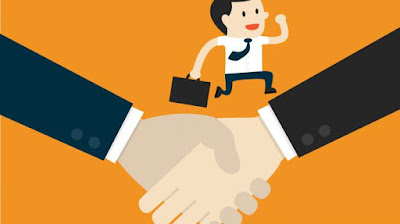What are the differences between a Cheque and a Demand Draft? - Aware Banking
Cheque: Cheque is a negotiable instrument instructing a Bank to pay a specific amount from a specified account held in the maker/depositor’s name with that Bank.
Demand Draft (DD): A demand draft is an instrument used for effecting the transfer of money. It is a Negotiable Instrument.
What are the differences between a Cheque and a Demand Draft?
Cheque
|
Demand Draft
|
|---|---|
A cheque is issued by an individual.
|
A Demand Draft is issued by a bank.
|
A cheque is an order of payment from an account holder to the bank.
|
A Demand Draft is an order of payment by a bank to another bank.
|
Payment is made of the cheque issued after the presentation of a cheque for encashment.
|
Payment is to be made to the Drawer Bank before the issuance of a draft.
|
There are three parties involved in the case of a cheque: Drawer of the cheque, Drawee of the cheque, and the Payee.
|
In the case of a draft, two parties are involved: Drawer and the Payee.
|
Drawer and Payee may be two different persons – if the payment is to be made to any third party. Drawer and the Payee may be the same person if the cheque is drawn on “Self”.
|
Drawer and Drawee are two different branches but of the same bank. The payee is the third party to whom the payment is to be made.
|
The drawer is the account holder of the bank.
|
Drawer is bank itself issuing the draft for a specific customer.
|
A cheque may be dishonored for lack of sufficient funds in the account of the drawer of the cheque.
|
A Demand Draft cannot be returned because it is a prepaid instrument.
|
A cheque can be paid either to the bearer (who presents the cheque to the bank) or order (whose name is specified on the cheque).
|
A Demand Draft is always payable to a specified party.
|
A cheque is defined in the Negotiable Instrument Act, 1881.
|
Although a Demand Draft is also a type of negotiable instrument, it is not defined in the N.I. Act, 1881.
|
A cheque requires a sign of the issuing individual or the authorized official of the firm.
|
It requires the stamp of the authorized officer/officers of the bank along with the rubber stamp of the bank.
|
No bank charges are levied while issuing a cheque.
|
Bank commission is charged to the account of the account holder for issuing of a draft or it is charged in cash.
|
Individual/firm issuing cheque must have a Savings Bank A/c or Current Account in the bank.
|
Individual/Party getting issued a Demand Draft may not necessarily be having a bank account in the bank. Demand Draft can be made in cash if the amount does not exceed Rs.50, 000/-.
|



Comments
Post a Comment